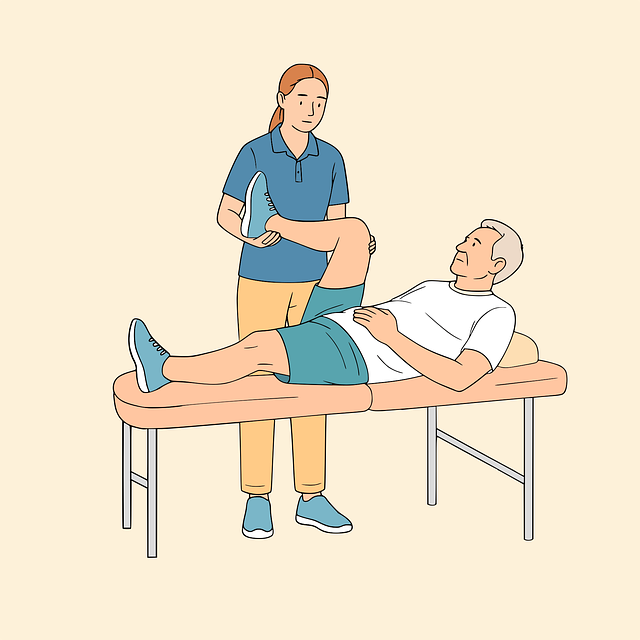Behavioral Coping Skills Training (BCST) leverages Cognitive Behavioral Therapy (CBT) techniques to empower individuals with effective strategies for managing emotional distress and negative thought patterns. Through CBT, BCST teaches self-reliance in mental health management by identifying and replacing unhelpful behaviors and thoughts with healthier alternatives. Key components include mindfulness, relaxation, progress tracking, and practical tools for enhancing well-being in various aspects of life. CBT therapy's evidence-backed approach not only aids in clinical conditions like anxiety and depression but also helps navigate everyday challenges, ultimately improving quality of life.
“Discover the power of Behavioral Coping Skills Training (BCST), a transformative approach in CBT therapy. This comprehensive guide explores how BCST equips individuals with effective strategies to manage stress and emotional challenges. From understanding the core principles to identifying unhealthy coping mechanisms, we delve into techniques for positive behavior change. Learn about integrating cognitive restructuring, practicing mindfulness, and tracking progress. Uncover real-world applications of BCST, revealing its impact on mental health support.”
Understanding Behavioral Coping Skills Training

Behavioral coping skills training is a therapeutic approach that focuses on empowering individuals with effective strategies to manage and overcome challenging situations. This form of training draws heavily from Cognitive Behavioral Therapy (CBT), a well-researched psychological treatment method. By identifying and modifying unhelpful thought patterns, CBT teaches individuals to replace negative behaviors with healthier alternatives.
Through structured exercises and practical techniques, this training equips folks with tools to confront stress, anxiety, or difficult emotions directly. It encourages active participation, enabling people to learn from their experiences and develop resilience. Ultimately, it’s about fostering self-reliance in managing one’s mental health, offering a practical and accessible way to navigate life’s challenges.
The Role of CBT in Mental Health Support

CBT, or Cognitive Behavioral Therapy, plays a pivotal role in modern mental health support. This evidence-based therapeutic approach focuses on identifying and changing negative thought patterns and behaviors that contribute to emotional distress. By challenging distorted thinking and adopting healthier coping mechanisms, individuals can effectively manage various mental health conditions such as depression, anxiety disorders, and post-traumatic stress disorder (PTSD).
CBT therapy empowers clients to become active participants in their own healing process. Through structured sessions, CBT helps individuals gain insights into their thoughts, feelings, and behaviors, fostering a deeper understanding of how they influence one another. This increased awareness enables people to develop more adaptive strategies for dealing with challenging situations, leading to improved overall well-being and quality of life.
Identifying Unhealthy Coping Mechanisms

Unhealthy coping mechanisms can often go unnoticed, becoming ingrained habits that negatively impact our well-being. These mechanisms, while providing temporary relief, may exacerbate problems in the long run. Behavioral Coping Skills Training (BCST) aims to help individuals identify these unproductive strategies and replace them with healthier alternatives. Through CBT therapy, clients learn to recognize patterns of maladaptive behaviors and emotions, enabling them to make significant changes.
By raising awareness of these coping mechanisms, BCST empowers individuals to understand the root causes behind their actions. This process involves introspection and self-reflection, encouraging folks to explore underlying issues that might have contributed to the development of unhealthy coping habits.
Techniques for Replacing Negative Behaviors

Behavioral coping skills training often involves replacing negative behaviors with more adaptive and healthy alternatives. Cognitive Behavioral Therapy (CBT) is a common approach used in this process, focusing on identifying and challenging distorted thinking patterns that contribute to maladaptive behaviors. By teaching individuals to recognize their thoughts and emotions, CBT enables them to replace old habits with new, positive responses.
One technique within CBT is behavioral activation, which encourages engagement in activities that bring pleasure or a sense of accomplishment. This can help redirect energy away from negative behaviors and towards more productive outlets. Other strategies may include problem-solving skills training, where individuals learn to approach challenging situations rationally and develop effective solutions, thereby reducing the reliance on harmful coping mechanisms.
Integrating Cognitive Restructuring into CBT

Cognitive Behavioral Therapy (CBT) is a powerful approach that integrates various coping skills, with one of its core components being cognitive restructuring. This process involves identifying and challenging negative thought patterns and replacing them with more realistic and positive ones. By doing so, CBT helps individuals gain a healthier perspective on their experiences and emotions. For instance, someone struggling with anxiety might learn to recognize and reframe catastrophic thoughts, thus reducing the intensity of their anxious responses.
During training, clients are encouraged to become aware of their automatic negative thoughts (ANTs) and question their validity. This self-reflection is facilitated through techniques such as thought recording, logical analysis, and behavioral experiments. By learning to challenge these thoughts constructively, individuals can develop more adaptive coping strategies, leading to improved emotional well-being and enhanced problem-solving abilities in various aspects of their lives.
Practicing Mindfulness and Relaxation Strategies

Practicing mindfulness and relaxation strategies is a crucial component of Behavioral Coping Skills Training (BCST). These techniques, often rooted in Cognitive Behavioral Therapy (CBT), help individuals cultivate present-moment awareness and develop effective ways to manage stress and anxiety. By focusing on their breath or engaging in guided meditations, folks can calm their minds and bodies, fostering a sense of tranquility and resilience.
Mindfulness involves observing thoughts and emotions without judgment, enabling individuals to detach from negative feelings. Relaxation strategies, such as progressive muscle relaxation or deep breathing exercises, physically reduce stress responses. Regular practice enhances one’s ability to navigate challenging situations calmly, significantly improving overall mental well-being.
Tracking Progress and Adjusting the CBT Approach

Tracking progress is a vital component of Behavioral Coping Skills Training (CBT). Therapists can use various methods to monitor clients’ development, such as setting specific and measurable goals, conducting regular assessments, and collecting feedback through questionnaires or interviews. This continuous evaluation allows for a dynamic approach where the CBT strategy can be adjusted as needed. If a client is making significant progress, therapists might introduce more challenging coping mechanisms to prevent setbacks. Conversely, if certain techniques are not effective, the therapist can explore alternative strategies or re-evaluate the initial treatment plan.
The flexibility of CBT lies in its ability to adapt to individual needs. By regularly reviewing progress, therapists ensure that the training remains relevant and beneficial. This personalized approach enhances the chances of successful coping skill development, empowering individuals to manage their emotional well-being effectively.
Real-World Applications of Behavioral Coping Skills Training

Behavioral coping skills training finds its real-world applications across various domains, offering a practical approach to enhancing mental well-being and resilience. One of the most prominent areas is within CBT (Cognitive Behavioral Therapy) therapy, where individuals learn to identify and modify negative thought patterns and behaviors, thereby reducing symptoms of anxiety and depression. These coping skills are not limited to clinical settings but extend to everyday life challenges, such as stress management at work or dealing with academic pressures.
Through role-playing scenarios, mindfulness exercises, and cognitive reappraisal techniques, individuals equipped with behavioral coping skills gain a deeper understanding of their emotional responses. This empowers them to navigate difficult situations more effectively, fostering adaptability and emotional intelligence. Real-world evidence highlights the efficacy of such training in improving overall quality of life, making it an increasingly popular tool for both therapeutic interventions and personal development initiatives.
